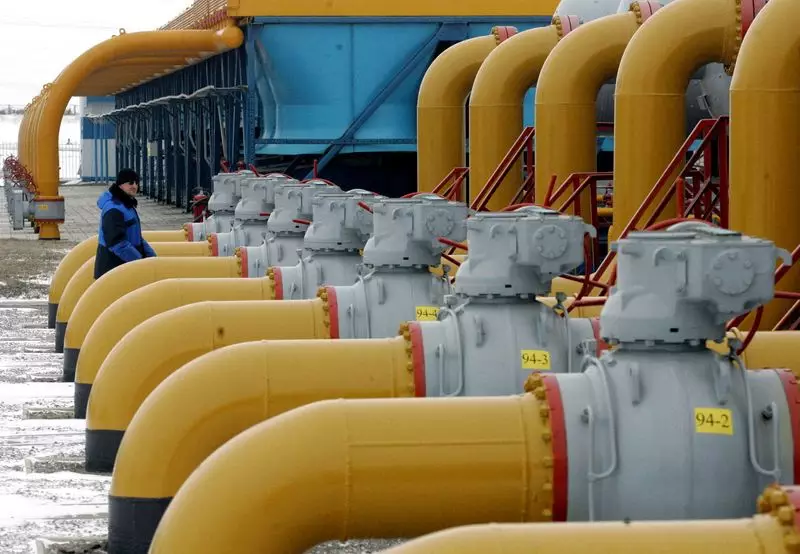The early hours of January 1, 2025, marked a significant turning point in the energy landscape of Europe, particularly concerning the transit of Russian natural gas through Ukraine. As the critical transit agreement expired, Russia’s longstanding gas supply routes experienced an abrupt halt. This development symbolizes not merely a logistical disruption but also a culmination of a decade-long deterioration in relations following Russia’s annexation of Crimea in 2014. Ukraine’s decision to cease transit, emphasizing security concerns amid an ongoing military conflict, has left a lasting impact on European energy supplies and Russia’s economic standing.
Ukraine’s Energy Minister, German Galushchenko, heralded this moment as a historic shift, signifying not just the end of gas flows but also a turning point in the energy market where Russia faces considerable financial ramifications. He indicated that the decision was firm and directly tied to national security interests, which underscores the extent to which geopolitical tensions have redefined energy dependencies. This shift illustrates how countries can pivot away from reliance on adversarial regimes, reshaping alliances and energy strategies in the process.
Ukrainian gas transit had been a vital artery for Russian exports, with estimates showing that nearly half of Russia’s pipeline gas exports to Europe traversed Ukraine. As a result of the cessation of these flows, Ukraine faces a projected loss of $800 million annually in transit fees, while Gazprom anticipates a staggering $5 billion drop in gas sales. Thus, both parties are grappling with the economic consequences of this energy impasse.
In anticipation of such a halt, the European Union had already initiated measures to minimize dependency on Russian gas following the outbreak of hostilities in early 2022. The urgency to secure alternative sources is evident, as countries like Slovakia and Austria have actively sought other suppliers, thereby solidifying the EU’s strategic pivot. This realignment is driving significant changes in European energy policies, as nations look to diversify their energy portfolios and pursue cleaner, more sustainable energy practices.
The first days of January saw muted responses from European leaders, yet the undercurrents of strategic planning were palpable. The urgency to handle the impending gas shortages and logistical challenges will necessitate a rethinking of energy strategies across the continent, emphasizing a collaborative approach to energy security.
While Gazprom still relies on the TurkStream pipeline, which supplies both the Turkish market and Central European customers, this route alone cannot compensate for the loss of the Ukrainian transit, which historically facilitated larger volumes of gas exports to the West. Compounded by the loss of other critical infrastructure routes such as the Yamal-Europe pipeline and the destruction of the Nord Stream lines, Russia’s capacity to assert influence over European energy markets has significantly contracted.
In a broader context, the war in Ukraine has fundamentally reshaped the dynamics of energy supply and geopolitical relationships. The immediate aftermath of the transit halt is causing nations, particularly in Eastern Europe, to consider energy conservation measures. For instance, Moldova, grappling with its energy needs, is predicting a one-third reduction in gas usage as it adapts to this new reality.
The cessation of Russian gas transit through Ukraine represents more than just a commercial schema; it signifies a paradigm shift in how countries approach energy from a national security standpoint. In the face of the ongoing conflict, the ramifications reach deep into the fabric of European energy reliance, underscoring the vulnerabilities associated with dependence on a singular supplier.
As nations continue to recalibrate their energy policies and seek alternatives, the push for renewable energy sources has become more urgent than ever. This transition not only addresses immediate needs but also aligns with broader environmental goals. The unfolding events demonstrate the complexities of modern energy geopolitics, highlighting that the interplay between political will, economic necessity, and strategic foresight will shape the future landscape of energy in Europe and beyond.

